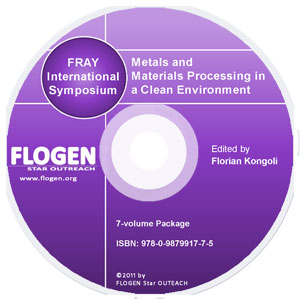
CD shopping page |
2011-Sustainable Industrial Processing Summit
|
| Editors: | Florian K |
| Publisher: | Flogen Star OUTREACH |
| Publication Year: | 2012 |
| Pages: | 646 pages |
| ISBN: | 978-0-9879917-4-4 |
| ISSN: | 2291-1227 (Metals and Materials Processing in a Clean Environment Series) |
Lithium sulfur batteries for electric vehicles
Kai Xi1; Ramachandran Kumar1; Hongyan Guan1;1UNIVERSITY OF CAMBRIDGE, Cambridge, United Kingdom;
Type of Paper: Regular
Id Paper: 287
Topic: 7
Abstract:
The main power for an electric car can be provided by a secondary battery with high energy density. Lithium sulfur batteries based on the multi-electron reaction are a very promising candidate for the next generation high energy density rechargeable batteries. It has a high theoretical capacity of 1675 mAh g-1 of S and a high nominal theoretical energy density of 2600 Wh kg-1 of cell weight, which has the potential to offer a practical energy density double the value in comparison with the present Li-ion batteries. However, it is plagued with problems due to the highly insulating nature of sulfur and the high solubility of lithium polysulfides. One of the most successful strategies to overcome this problem is to fabricate sulfur-porous carbon composites. Mass production of these lithium sulfur batteries would require a large amount of sulfur which can be met as sulfur production continues to increases every year. On the other hand, if is the need of lithium that has to be considered as there is insufficient economically recoverable lithium available in the Earth's crust to sustain electric vehicle manufacturing in the volumes required.